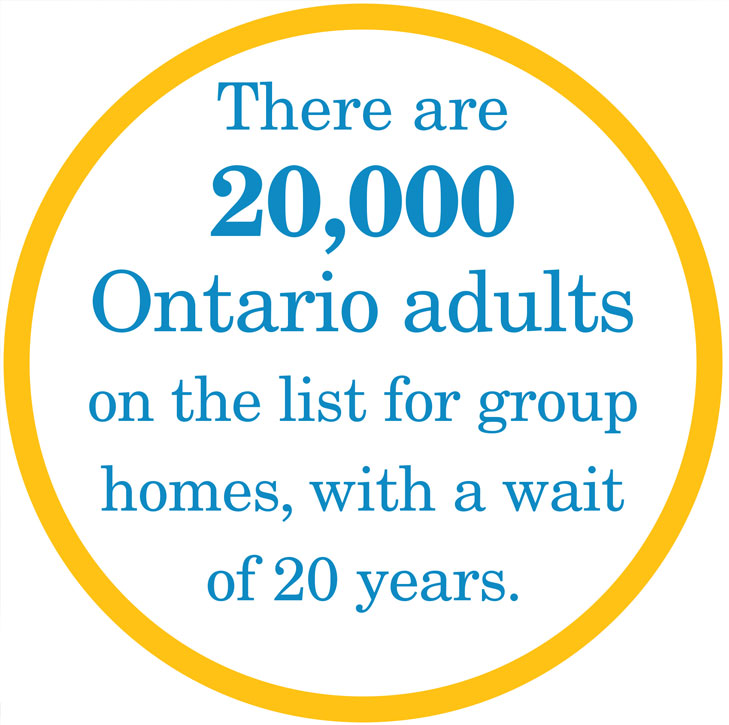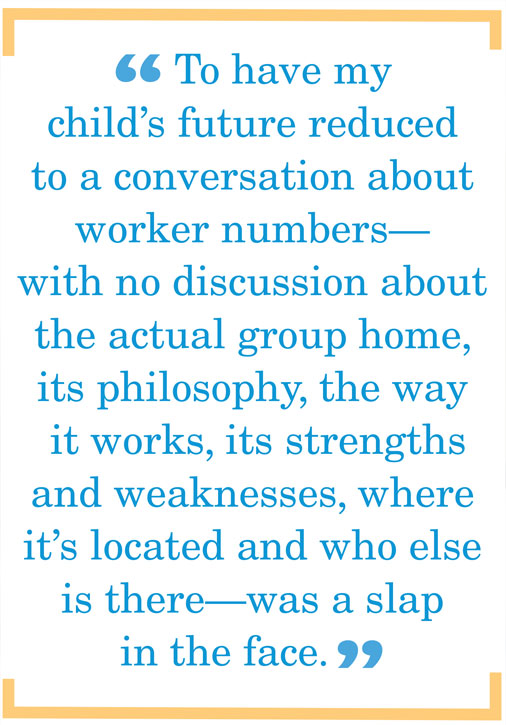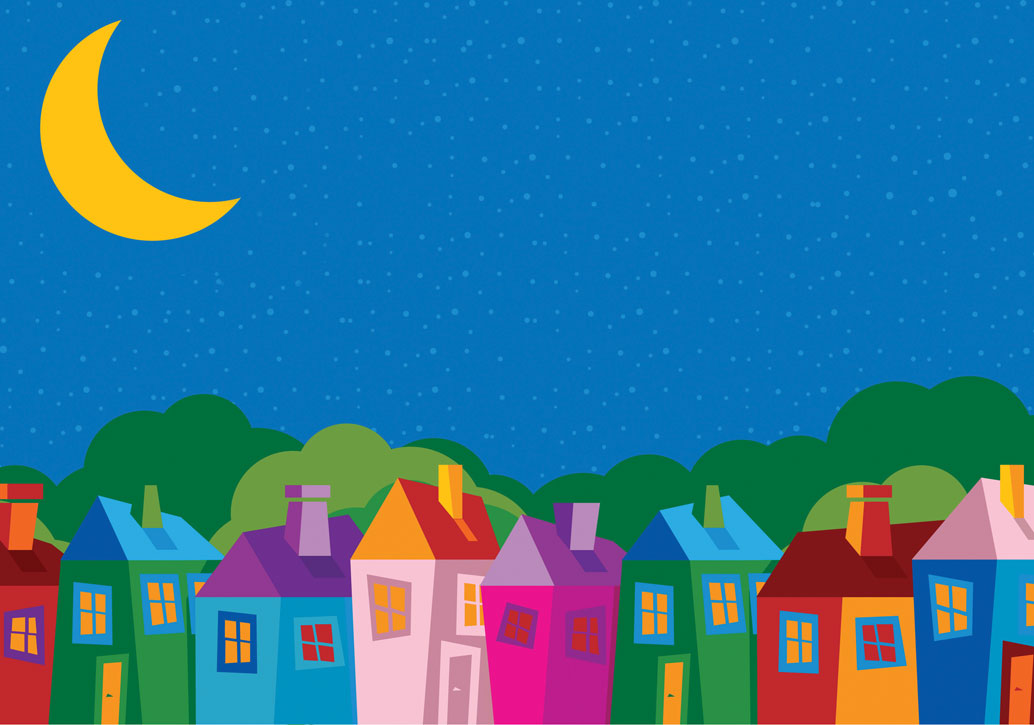Ontario and MaRS pose a citizen- centred housing challenge
centred housing challenge
By Louise Kinross
Two years ago, we had the assessment necessary for getting an adult with an intellectual disability onto the list for community services, including group homes, in Ontario. My son Ben and I spent more than three hours filling out a highly cumbersome, overly complicated survey that was supposed to measure how much support Ben needs.
Given we had taken a morning off school and work, it was galling to be told during the assessment that there were no services to be had. We were, however, asked to pick a lead agency that would be responsible for Ben’s needs. We chose L’Arche, the homes for people with intellectual disabilities developed by humanist Jean Vanier. Since then, we haven’t heard a peep. We recently met with a woman who helps families plan for their child’s transition to adult services and she encouraged us to follow up.
This is the summary of our phone conversation with Developmental Services Ontario:
• There are no longer “lead agency” designations. (Why were we not informed of this?)
• Ben needs 19- to 24-hour support in a home with no greater than a 3:1 resident/support-worker ratio, but these types of homes do not exist. Any available spots go first to people with complex medical needs.
• The list Ben is on is not a waiting list, but a needs list. We are a low priority because our family has two working parents.
• To have any hope of getting a call back, it was recommended we that raise the resident/worker ratio to 5:1.
Every parent dreams that their child will lead a rich adult life, one in which they choose to do things that matter to them and are supported in ways that allow them to thrive and be happy.
 To have my child’s future reduced to a conversation about worker numbers—with no discussion about the actual group home, its philosophy, the way it works, its strengths and weaknesses, where it’s located and who else is there—was a slap in the face.
To have my child’s future reduced to a conversation about worker numbers—with no discussion about the actual group home, its philosophy, the way it works, its strengths and weaknesses, where it’s located and who else is there—was a slap in the face.
Back in March, I tweeted about the Select Committee on Developmental Services looking at the crisis in adult housing in Ontario. At that time, the committee said there were 12,000 Ontario adults on a list for group homes, with a wait of 20 years. TWENTY years. The report also noted that 2,300 families caring for adults are waiting for respite in a province with only 225 available respite beds.
It is common knowledge that the only time people are placed in group homes long-term is when their parents die. Once that happens, who will be there to ensure the fit is a good one? Our experience indicates that this is a numbers game that has nothing to do with the person involved and his or her hopes and dreams.
Recently, I was thrilled to see a challenge to find solutions to the crisis by the Ontario Ministry of Community and Social Services and MaRS, the medical research and social innovation hub in Toronto. In defining the problem, the MaRS Challenge Brief says that $1.15 billion is spent on residential support for about 18,000 adults with developmental disabilities in Ontario each year, but that 7300 adults are on a wait list (I am not sure about this discrepancy with the Developmental Services Committee numbers). The brief says that as of July last year, there were more than 800 complaints by families to the ombudsperson.
The Community and Social Services Ministry has partnered with MaRS to develop and test new approaches to transform the system. The challenge question posed was: “What would homes and communities need to look like for citizens with developmental disabilities to achieve citizenship: To live in the communities they choose, to grow and lead full lives?”
Six areas of research were identified. The paper says next steps are to:
• convene partnerships across the four to six ministries of the government that impact people with developmental disabilities
• deepen understanding about people with developmental disabilities and citizenship
• explore pent-up demand and information strategies that better inform future planning
• explore and co-design citizen-centred alternatives (“Many social problems are often defined from an institutional perspective,” the brief says. “The lab takes a different view. Using tools from design thinking we try to gain a deep
understanding of the problem from a citizen or user perspective. Not by just analyzing the numbers, but by also studying the people.”)
• transform the system by exploring how to increase capacity to support family- and community-led innovation
• clarify and quantify developmental services objectives that are citizen-centred.
Louise Kinross, BA, is special projects manager at Holland Bloorview and editor of BLOOM, a magazine on parenting children with disabilities. Louise’s 20-year-old son Ben has a rare genetic disorder.
Reprinted with permission from the Bloom blog: bloom-parentingkidswithdisabilities.blogspot.ca














